Guest blogged by Ernest A. Canning
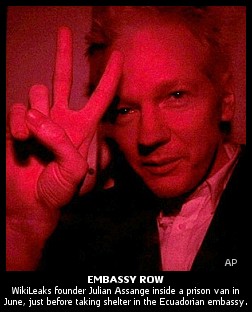 Undaunted by a U.K. threat to "storm" Ecuador's London embassy if the Latin American nation refused to hand over WikiLeaks founder Julian Assange to British authorities, this morning, Ecuador granted Assange's request for political asylum.
Undaunted by a U.K. threat to "storm" Ecuador's London embassy if the Latin American nation refused to hand over WikiLeaks founder Julian Assange to British authorities, this morning, Ecuador granted Assange's request for political asylum.
At a press conference in Quito, Ecuador's foreign minister Ricardo Patino strongly denounced the threat received from the U.K.: "Today we've received a threat by the United Kingdom, a clear and written threat that they could storm our embassy in London if Ecuador refuses to hand in Julian Assange."
Ecuador's decision to grant asylum in the face of the U.K.'s threat have not only triggered a diplomatic row but have threatened to tear apart the very fabric of international rule of law, according to experts. Where one could anticipate Sweden's denouncement of Ecuador's asylum decision as "unacceptable", as it summoned Ecuador's ambassador to Stockholm, the British threat to storm Ecuador's embassy was described by University of Australia Professor of International Law Don Rothwell as "extraordinary" and a "significant violation" of Article 22 of the 1961 Vienna Convention on Diplomatic Rights that could "find its way before an international court."
As Ecuador's foreign minister issued an angry denouncement of the U.K. threat, noting that his nation was "not a British colony", American filmmaker Michael Moore called on his friends in the U.K. to mount a protest of the U.K. threat outside Ecuador's London embassy. Occupy Wall Street protesters called for "people to take part in a 24/7 occupation of the British consulate in New York." Reuters reported a "clash between protesters and British police outside of Ecuador's embassy."
But, as discussed in a must-read opinion piece by Mark Weisbrot of the UK Guardian, the very concept of an international rule of law is open to question given the impunity by which the United States and its allies have operated both at home and abroad...
Hypocrisy
How ironic! Only last year, both the U.S. and the U.N. Security Council formally condemned an Iranian attack on the British embassy in Tehran, drawing a comparison to the widely condemned 1979 Iranian assault on the U.S. embassy in Tehran and the ensuing hostage crisis.
Yet, now we see the British government threatening to engage in the very same lawless behavior in order to seize an individual who has never been formally charged with a crime. To the contrary, as Weisbrot correctly notes, Sweden has sought extradition solely to question Assange --- an extradition which former Stockholm prosecutor Sve-Erik Alhem described as "unreasonable and unprofessional, as well as unfair and disproportionate" because Assange has always been available to answer questions in the U.K.
In fact, according to Weisbrot, an offer was extended for Swedish authorities to question Assange inside Ecuador's London embassy.
Weisbrot argues that the real reason why Ecuador's asylum decision has drawn an unprecedented threat by a democratic government to invade a sovereign embassy lies in the fact that Ecuador, by granting asylum, has recognized that Assange has demonstrated a valid fear of being persecuted by a supposedly democratic United States government, which claims to be the world's foremost defender of human rights.
Assange has long argued that extradition to Sweden would result in subsequent extradition to the U.S. for trial on unspecified charges. He took refuge at the Ecuadorian embassy in June "to avoid extradition to Sweden, where he faces questioning over assault and rape claims, which he denies," according to the BBC.
While claims of U.S. virtue have long been undermined in the international arena by its "disregard for the human rights of the victims of U.S. wars and foreign policy, such as the three million Vietnamese and more than one million Iraqis who were killed," Weisbraut explains, it has clung to the notion that human rights were always observed "within its borders."
To that claim, Weisbrot offers this powerful statement:
RT video today covering the events surrounding the UK threat to storm Ecuador's embassy follows below...
Ernest A. Canning has been an active member of the California state bar since 1977. Mr. Canning has received both undergraduate and graduate degrees in political science as well as a juris doctor. He is also a Vietnam vet (4th Infantry, Central Highlands 1968). Follow him on Twitter: @Cann4ing.


 Kamala Rising:
Kamala Rising: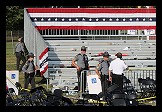 Evidence Fails to Establish Attempted Trump Assass-ination Politically Motivated
Evidence Fails to Establish Attempted Trump Assass-ination Politically Motivated Former MAGA 'Cultist' on the State of the Race for 'MAGA Americans': 'BradCast' 7/23/24
Former MAGA 'Cultist' on the State of the Race for 'MAGA Americans': 'BradCast' 7/23/24  'Green News Report' 7/23/24
'Green News Report' 7/23/24
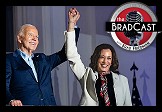 Biden Out, Endorses
Biden Out, Endorses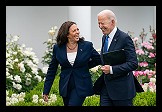 BIDEN DROPS REELECTION BID
BIDEN DROPS REELECTION BID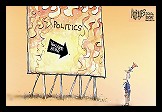 Sunday 'You Are Here' Toons
Sunday 'You Are Here' Toons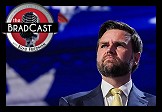 What J.D. Vance Forgot to Tell You (and Lied About) at the RNC: 'BradCast' 7/18/24
What J.D. Vance Forgot to Tell You (and Lied About) at the RNC: 'BradCast' 7/18/24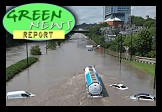 'Green News Report' 7/18/24
'Green News Report' 7/18/24 Holding on for Dear Life Amid the Political Whirlwind: 'BradCast' 7/17/24
Holding on for Dear Life Amid the Political Whirlwind: 'BradCast' 7/17/24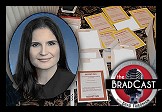 Cannon's Corruption: 'BradCast' 7/16/24
Cannon's Corruption: 'BradCast' 7/16/24 'Green News Report' 7/16/24
'Green News Report' 7/16/24 Amid the Assassination Attempt Aftermath:
Amid the Assassination Attempt Aftermath:
 Meanwhile... : 'BradCast' 7/11/24
Meanwhile... : 'BradCast' 7/11/24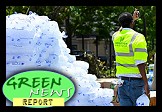 'Green News Report' 7/11/24
'Green News Report' 7/11/24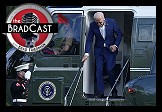 Paging 'Johnny Unbeatable'! Dems (Actually!) in Disarray!: 'BradCast' 7/10/24
Paging 'Johnny Unbeatable'! Dems (Actually!) in Disarray!: 'BradCast' 7/10/24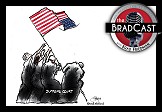 SCOTUS Immunity Ruling 'As Bad as it Sounds', And Worse: 'BradCast' 7/9/24
SCOTUS Immunity Ruling 'As Bad as it Sounds', And Worse: 'BradCast' 7/9/24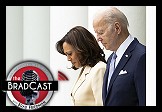 So, What Now?: 'BradCast' 7/8/24
So, What Now?: 'BradCast' 7/8/24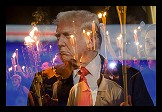 Debunking MAGA Cult Xenophobia
Debunking MAGA Cult Xenophobia A Friendly Suggestion: Harris-Newsom 2024
A Friendly Suggestion: Harris-Newsom 2024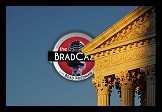 Prosecutor: SCOTUS Corruption Ruling Less Corrupt Than Appears: 'BradCast' 6/27/24
Prosecutor: SCOTUS Corruption Ruling Less Corrupt Than Appears: 'BradCast' 6/27/24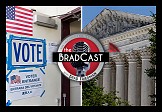 Good News and Bad: At the Polls and From the Corrupted Court: 'BradCast' 6/26/24
Good News and Bad: At the Polls and From the Corrupted Court: 'BradCast' 6/26/24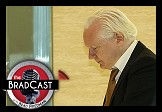 'Emptywheel' on Assange Hacking, Plea Deal: 'BradCast' 6/25/24
'Emptywheel' on Assange Hacking, Plea Deal: 'BradCast' 6/25/24
 VA GOP VOTER REG FRAUDSTER OFF HOOK
VA GOP VOTER REG FRAUDSTER OFF HOOK Criminal GOP Voter Registration Fraud Probe Expanding in VA
Criminal GOP Voter Registration Fraud Probe Expanding in VA DOJ PROBE SOUGHT AFTER VA ARREST
DOJ PROBE SOUGHT AFTER VA ARREST Arrest in VA: GOP Voter Reg Scandal Widens
Arrest in VA: GOP Voter Reg Scandal Widens ALL TOGETHER: ROVE, SPROUL, KOCHS, RNC
ALL TOGETHER: ROVE, SPROUL, KOCHS, RNC LATimes: RNC's 'Fired' Sproul Working for Repubs in 'as Many as 30 States'
LATimes: RNC's 'Fired' Sproul Working for Repubs in 'as Many as 30 States' 'Fired' Sproul Group 'Cloned', Still Working for Republicans in At Least 10 States
'Fired' Sproul Group 'Cloned', Still Working for Republicans in At Least 10 States FINALLY: FOX ON GOP REG FRAUD SCANDAL
FINALLY: FOX ON GOP REG FRAUD SCANDAL COLORADO FOLLOWS FLORIDA WITH GOP CRIMINAL INVESTIGATION
COLORADO FOLLOWS FLORIDA WITH GOP CRIMINAL INVESTIGATION CRIMINAL PROBE LAUNCHED INTO GOP VOTER REGISTRATION FRAUD SCANDAL IN FL
CRIMINAL PROBE LAUNCHED INTO GOP VOTER REGISTRATION FRAUD SCANDAL IN FL Brad Breaks PA Photo ID & GOP Registration Fraud Scandal News on Hartmann TV
Brad Breaks PA Photo ID & GOP Registration Fraud Scandal News on Hartmann TV  CAUGHT ON TAPE: COORDINATED NATIONWIDE GOP VOTER REG SCAM
CAUGHT ON TAPE: COORDINATED NATIONWIDE GOP VOTER REG SCAM CRIMINAL ELECTION FRAUD COMPLAINT FILED AGAINST GOP 'FRAUD' FIRM
CRIMINAL ELECTION FRAUD COMPLAINT FILED AGAINST GOP 'FRAUD' FIRM RICK SCOTT GETS ROLLED IN GOP REGISTRATION FRAUD SCANDAL
RICK SCOTT GETS ROLLED IN GOP REGISTRATION FRAUD SCANDAL VIDEO: Brad Breaks GOP Reg Fraud Scandal on Hartmann TV
VIDEO: Brad Breaks GOP Reg Fraud Scandal on Hartmann TV RNC FIRES NATIONAL VOTER REGISTRATION FIRM FOR FRAUD
RNC FIRES NATIONAL VOTER REGISTRATION FIRM FOR FRAUD EXCLUSIVE: Intvw w/ FL Official Who First Discovered GOP Reg Fraud
EXCLUSIVE: Intvw w/ FL Official Who First Discovered GOP Reg Fraud GOP REGISTRATION FRAUD FOUND IN FL
GOP REGISTRATION FRAUD FOUND IN FL


































